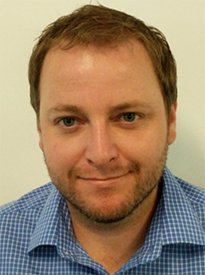
- This event has passed.
ECE DLS: Joseph Bardin “Google Quantum AI and The University of Massachusetts Amherst”
March 16, 2023 @ 4:00 pm - 5:00 pm
 Professor Joseph Bardin, University of Massachusetts Amherst
Professor Joseph Bardin, University of Massachusetts Amherst
Title: Google Quantum AI and The University of Massachusetts Amherst
Abstract: Over the past decade, the field of quantum computing has evolved from one primarily known for generating scientific papers to one which promises to enable computations that would not be possible using any other known technology. Following this potential, numerous large companies are racing to build a quantum computer, and governments across the globe are pouring money into academic research that may lead to the improvement of the fundamental building blocks and supporting technologies used throughout the quantum information sciences. Much of the excitement is driven by seemingly exponential progress in the field and the associated steady stream of major announcements, which have quickly grown from basic proof of principles to large system demonstrations. In fact, many of the major industrial players in the field who have helped to drive this progress currently have their eyes set on the realization of large-scale error-corrected quantum computers. Behind the rapid progress, is a story of complex system design and numerous engineering innovations.
In this talk, I will give an overview of superconducting quantum computing, with a focus on research topics of interest to the electrical engineering community. The talk will begin with a brief introduction to the field of quantum computing. I will then describe the technology at the core of Google’s state-of-the-art Sycamore quantum computer systems before explaining how these devices have been used for the first demonstrations of quantum advantage and error suppression using quantum error correction. After bringing the audience up to date with the state-of-the-art, I will describe the significant gap between today’s technology and that required for useful error-corrected quantum computing and how EE-related technologies such as integrated circuits (ICs), packaging, and interconnects will be critical in bridging this gap. Examples of research ICs will be presented. The talk will conclude with a brief discussion of open issues related to the scaling of superconducting quantum computers.
Bio: Joseph Bardin is a Full Professor of Electrical Engineering at the University of Massachusetts Amherst and a Research Scientist Google Quantum AI. He received the PhD degree in electrical engineering from the California Institute of Technology in 2009. His research group at UMass currently focuses on low temperature integrated circuits with applications in radio astronomy and the quantum information sciences. At Google, he leads the team working to build integrated circuits for Google’s future quantum computers. Professor Bardin was a recipient of a 2011 DARPA Young Faculty Award, a 2014 NSF CAREER Award, a 2015 Office of Naval Research YIP Award, a 2016 UMass Amherst College of Engineering Barbara H. and Joseph I. Goldstein Outstanding Junior Faculty Award, a 2016 UMass Amherst Award for Outstanding Accomplishments in Research and Creative Activity, a 2020 IEEE MTT-S Outstanding Young Engineer Award, the 2020 BCICTS Best Paper Award, and the 2022 IEEE MTT-S Microwave Magazine Best Paper Award.